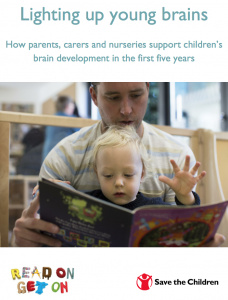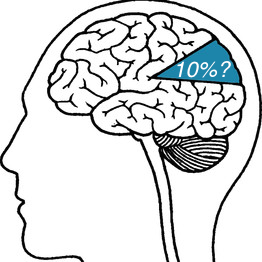On the 11th of January, the Medical Research Council (MRC) – Cognitive and Brain sciencesUnit (CBU) welcomed researchers and practitioners to Cambridge for a two-day seminar on cognitive training in children. The workshop opened with a presentation from Edmund Sonuga-Barke from the University of Southampton, examining randomised control trials of Attention Deficit and Hyperactivity Disorder (ADHD) and assessing the importance of designing effective trials. Targeting the key cognitive deficits associated with ADHD (planning, inhibitory control, flexibility, and working memory) with multiprocess interventions has been shown to have a greater impact than targeting working memory by itself. However, the results of cognitive training interventions have not led to substantial associated improvement in ADHD symptoms. Sonuga-Barke argued that to maximise the effectiveness of interventions, they should be tailored to cognitive subgroups reflecting the heterogeneous nature of ADHD, and may be most effective when run alongside behavioural interventions. Rather than considering executive dysfunction as a causal factor of ADHD, it may be a comorbid factor, whereby functional impairment results when individuals exhibit both executive function deficits and ADHD symptoms.
Next up was Michelle Ellefson of the University of Cambridge, who spoke about the potential for using chess as a cognitive intervention in older children. Ellefson argued that chess can be seen as a non-computerised executive function training programme, as it requires flexible thinking, working memory, inhibitory control, and planning. It is also adaptive as players improve over time and continue to challenge each other. With this in mind, Ellefson used chess as a cognitive intervention in an after school activity for children in high poverty communities. Some improvement in executive function was seen, and the greatest improvement seemed to be in those who started with lower general cognitive ability. Analysis of the huge dataset is ongoing, and a next iteration is in the planning, with more precise measurements of intervention factors, such as time spent playing chess.
The third speaker was Emma Blakey from the University of Cardiff, who spoke about an executive function training programme for pre-schoolers. The programme saw an improvement in working memory skills following a short four-session training intervention. Blakey highlighted the importance of using a test task that is different from the training task to assess transfer. In this case, the training effect did transfer to a task sharing few features with the training task. Further, Blakey found far transfer to a mathematical reasoning task at three month follow up.
The final speaker for the first day was Usha Goswami of the University of Cambridge. Goswami spoke about her Wellcome Trust and EEF funded project investigating the effectiveness of a computerised programme called Graphogame Rime. Graphogame was developed in Finland, and is now played by all Finnish children when they are learning to read. While a phonetic version of the programme has been hugely successful in Finland, a rime version has been created for English speaking pupils, since English has many more irregularities than Finnish. Graphogame Rime helps children to use rimes in word-learning, such as ‘at’ in ‘cat’. This enables children to read groups of words with similar rimes, such as mat, sat, chat. Goswami hopes to find that this will be more effective than phonological training, and the project is ongoing. We look forward to hearing the results.
Day two of the seminar was kicked off by Sam Wass from the University of East London, who talked about his research on training attentional control in infants. With only a short training period, a significant improvement in attention was measured, however after 6 months only ‘sequence learning’ improvements remained. This suggests that infants, compared to older children, require a shorter length of cognitive training for improvements to be measured, however the effects may dissipate more rapidly, possibly due to increased plasticity in this age group.
Torkel Klingberg from the Karolinska Institute in Sweden presented data from a functional magnetic resonance imaging (fMRI) intervention study which predicted responses to mathematical and cognitive training in children. Four intervention groups were compared – reading, reading and working memory, reading and numberline training, and numberline training with working memory – with outcome measures differing from the training. The maths improvement was greatest in the numberline and working memory training group. Participants with low working memory scores at baseline showed the poorest improvement in working memory after training, suggesting that factors driving poor working memory development continue to limit progress even during working memory training interventions. It is suggested that these factors are genetic (DAT-1 and DRD2) and neural (striatum). Brain activations predicted the type of training which participants would best respond to, therefore fMRI diagnosis could be an effective alternative to examination by neuropsychologists.
Duncan Astle from the MRC-CBU discussed his resting state magnetoencephalography (MEG) study which focussed on functional connectivity within the brain. If different areas of the brain concurrent oscillatory activity, it is likely that these areas are working together. A cognitive training group was compared with an active control group, and post-test resting state network connectivity was shown to improve in the test group, correlating with behavioural measures of working memory improvement. It was suggested that the cognitive training had an impact on phase amplitude coupling which results in improving connectivity rather than isolated changes in specific brain areas.
The final speaker was Susan Gathercole from the MRC-CBU, who was also one of the conference organisers. Gathercole spoke about the current state of working memory training studies and how we might best move forward. The gold standard of training studies are those that are randomised control trials which include an active control group rather than a waiting control group. Many of these studies have shown no or minimal far transfer. Gathercole argued that rather than aiming for far transfer, we first needed to understand near transfer. By understanding the mechanisms involved, we will be able to suggest why far transfer effects are inconsistently observed in current studies.
One of the key areas of discussion that arose throughout the seminar was how best to design interventions. Minimal training is ideal because of the time and money commitment, but we don’t yet know how much is needed to achieve the biggest effects. Some research suggests that effects tend to plateau following 15 to 20 training sessions. A recent move in the training literature is towards embedding cognitive training within the subject domain. Although this sounds like it may lead to greater transfer (within that domain) we are not yet sure if this is the case. Alan Baddeley referred to stroke patients who are trained to climb stairs in the clinic, yet need to be trained again to climb stairs in a different setting. Even though the same skill is required, it needs to be trained within each setting. It remains to be seen how well transfer will work for cognitive training within specific subject domain. The final discussion of the seminar focussed on the need to measure real-world abilities, rather than relying on lab measures. We need to make sure our research is applicable to the classroom and home, and this may require video-recording individuals in their natural setting, and coding their behaviour.
The workshop brought together exciting research on cognitive training in a variety of different fields, and facilitated valuable discussions about how to proceed with future research. The sessions demonstrated the importance of examining research methods and cognitive theory, as well as sharing findings and conclusions. The workshop offered a great opportunity to listen, to question and to network, and was certainly a very enjoyable and interesting event.








